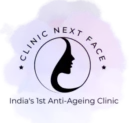- Talk to Our Experts
Dark Circles : Common Causes And Treatments
Table of Contents
ToggleThe overall prevalence of Indian women is 50% with moderate to severe dark circles on the upper eyelid and increases with age.
Highlights
- As per an NCBI study, dark circles affect more women than men. They occur in 47.50% of individuals between 16 to 25 years of age.
- Genetics is one of the key causes of dark circles.
- Dark circles can get permanent if not treated on time.
- A proper medical diagnosis and therapy can remove dark circles.
What Are Dark Circles?
Dark circles are the discoloration or darkening of the skin surrounding or below your eyes. The discolored or darkened skin looks dark brown, blue, and black. The look of pigmented skin is also called Periorbital dark circles or Infraorbital Discoloration, Infraorbital Darkening, Periorbital Melanosis, and Periorbital Hyperpigmentation (POH).
Dark circles below your lower eyelids with bags are common. Though dark circles can develop in anyone, they are more common in older adults, people with darker skin tones, and people with a genetic history of this condition.
Dark circles below your lower eyelids with bags are common. Though dark circles can develop in anyone, they are more common in older adults, people with darker skin tones, and people with a genetic history of this condition.

Dark Pigment

Thin Skin

Lack Of Bone Support

Excess Skin

Hollowness
What Causes Dark Circles?
Dark circles appear under your eyes because of various reasons. Here are some of the common causes of dark circles are:
Aging
Natural aging is a common cause of dark circles below your eyes. Your skin gets thinner as you grow older. The fat and collagen, which maintains elasticity in your skin, reduces gradually. As the dark blood vessels below your skin get more visible, it darkens the area under your eyes.
Eyestrain
When you watch television or stare at your computer screen for hours, it causes strain on your eyes. The strain can increase the blood vessels and darken the skin surrounding your eyes.
Allergies
Allergic reactions and eye dryness can cause dark circles. As you get an allergic reaction, your body releases histamines that fight off the invader and cause redness, itchiness, and puffy eyes. Histamines also dilate and make your blood vessels more visible below your skin.
Allergies can make you feel like rubbing and scratching the itchy skin surrounding your eyes. Such actions can deteriorate your symptoms, such as swelling, inflammation, and broken blood vessels, which cause dark shadows under your eyes.
Fatigue
Extreme fatigue, overseeing, or staying awake for a few hours past your usual bedtime can form dark circles under your eyes. Sleep deprivation can make your skin look paler and dull. The blood vessels and dark tissues under your skin can start to appear. Lack of sleep may accumulate fluid under your eyes and make them look puffy. You can see dark circles that may be shadows cast by puffy eyelids.
Overexposure to Sun
When you get overexposed to the sun, your body produces extra melanin, the pigment which gives your skin color. Excessive sun exposure to your body, mainly your eyes, can cause pigmentation which darkens the surrounding skin.
Anemia
Anemia occurs when the red blood cells in your body are lower than normal, which can make you feel weak, dizzy, tired, have shortness of breath, and lightheaded. If you have anemia, you may see that your skin looks paler and get dark circles under your eyes. Dietary changes and taking iron supplements can help you to cure anemia gradually.
Genetics
Genetics plays a crucial part in developing dark circles below your eyes. The issue may be an inherited trait you can see early in childhood. The dark circles may darken or lighten over time. Other health issues, like thyroid disease, can also cause dark circles below your eyes.
Dehydration
Dehydration is a common cause of dark circles below your eyes. The skin under your eyes starts looking dull and your eyes appear sunken because of their closeness to the hidden bone.
Smoking or Alcohol Consumption
If you smoke or drink alcohol every day, it can cause periorbital hyperpigmentation. Smoking mainly affects the microcirculation of your skin and can cause dark circles.
- External or Exogenous Factors
- Fatigue and stress: A poor sleep cycle, environmental, and psychological stress can strain the muscles around the eyes, often causing POH. Dark circles under the eyes are not necessarily a sign of tiredness, but the two do appear correlated.
- Sunlight: When the skin comes into contact with sunlight, it leads to an increase in the production of melanin, leading to POH.
- Medication: Hormonal medication and ocular hypotensive eyedrops (like the type used to treat glaucoma) can cause dark circles to form.
- Alcohol/Smoking: Excessive smoking and alcohol consumption can aggravate periorbital hyperpigmentation. Smoking, specifically, can affect the microcirculation of the skin and can cause dark circles.
How Is POH Diagnosed?
POH diagnosis involves a multi-causal process. At Clinic Next Face, we consider detailed medical and hereditary records with lifestyle, environmental stressors, and diet and perform an extensive cutaneous examination. Then, we perform a diagnosis and suggest the right treatment.
Who Is At Risk?
As per a study published in the Indian Journal of Dermatology, the “…commonest form of POH was constitutional (51.50%) followed by post-inflammatory (22.50%). Faulty habits were observed viz. lack of adequate sleep (40%), frequent cosmetic use (36.50%), frequent eye rubbing (32.50%), and lack of correction for errors of refraction like myopia in 12% of patients. The strong association of POH with stress (71%), atopic (33%), and family history (63%) was noted.”
How Do I Prevent Dark Circles From Appearing Under Eyes?
Here are the ways you can prevent dark circles from appearing under your eyes:
- Sleep enough to rest your facial muscles and rejuvenate your full body. The proper sleep cycle helps your body repair itself in the sleep circle.
- Drink sufficient water to hydrate your skin. It is a natural moisturizer and cleanser for your skin.
- Follow a proper diet to have flawless skin and healthy hair. You should avoid taking processed food products.
- Apply sunscreen and moisturizer every day on the skin around your eyes.
- Don’t rub your eyes frequently.
Are Home Remedies Helpful?
You can always find countless information about home remedies to remove dark circles. Such remedies have as such no scientific evidence about their effectiveness to cure skin concerns. You should avoid home remedies every day as your skin may react adversely to them, which may deepen your dark circles.
As multiple factors cause dark circles, you should follow a detailed medical treatment plan and change your lifestyle. Our certified dermatologist can prescribe the right treatment to lighten your dark circles.
Clinic Next Face aims to redefine skincare quality and deliver advanced dermatology solutions.
Treatment Options
- PlasmoDerm Treatment For Dark Circles
- Topical medication containing retinoids and skin lightening agents like kojic acid, vitamin C, etc.
- Dark circle peels
- Brightening peels
- Q-switched YAG lasers for deep pigmentation
- Microneedling Radiofrequency for fine lines under the eye
- Botox for fine lines on the outer corners of the eye
- Fillers for tear troughs
- Dermapen Microneedling
Multiple factors cause dark circles. A thorough medical treatment plan, along with lifestyle changes, should be implemented. It is always advisable to seek and pursue treatments prescribed by a certified dermatologist.
Delivering World-class dermatology solutions is our mission! Redefining the quality of care is a passion!
Talk To Our Dark Circle Expert Today!
No Obligations! Just jump on a quick call with our dark circle expert and know what kind of treatment will suit you the best.
Either way you will get some actionable tips to reach your skin goals faster.







